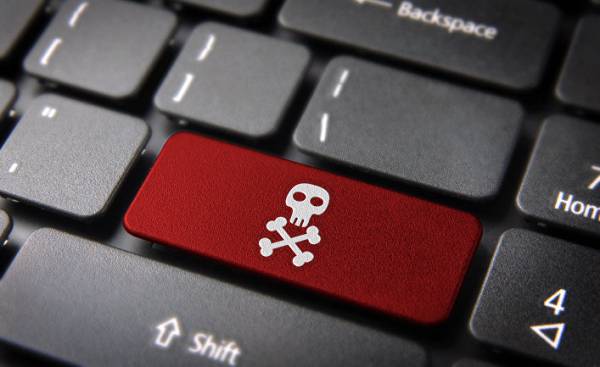
No one can question the advantages of the digital revolution when it comes to improving our health, control energy consumption or the optimization of our trips. In turn, the growing dictatorship of digital and big data has disturbing implications, at least in two areas.
First the bad news: the new tools of digital communication unusually expand the capabilities and range of various scams. We can talk about individual personalities or malicious communities, cyberswindlers and organizations intent on global domination. The list of crimes on the Internet is constantly growing. Here and harassment on social networks, and hacking into digital data during the election, and virus attack.
After the virus Wannacry, thousands of companies and organizations have become victims of a new large-scale cyber attacks using virus-extortionist called NotPeyta. The potential damage is extremely serious in such vital sectors as industry, health, banking, aviation and so on.
And this phenomenon is gaining momentum for many reasons. On the one hand, global interconnection of computer sites on the Internet and the “cloud” facilitates almost instantaneous spread of viruses, on the other — an endless race between the ongoing innovation of cyber criminals and security systems.
 © AFP 2017, StringerШтаб of Alibaba in Hangzhou, China
© AFP 2017, StringerШтаб of Alibaba in Hangzhou, China
Agency to ensure digital security exist in many countries, such as the National Agency for information systems security in France. But to analyze the sources of these attacks require long research and international coordination, which is still in its infancy. Moreover, the growth in the number of connected objects will greatly facilitate digital piracy, as it will be much easier to decipher the principle of operation of the software instrument in the free market, than the mechanism of information centres.
In the worst case, imagine one of the possible catastrophic scenarios of development of the website Alibaba, which now provides most of the services offered in the network. Search engines, social networks, e-Commerce, commodities trading, payment system, Internet connection various objects — all this is in daily contact with hundreds of millions of Chinese, and tomorrow, maybe with half the land. What happens in a few years if it turns out that the giant has other purposes than trade domination, with the blessing of the Chinese government?
The second bad news: our freedom of thinking and action is limited to every day. Mountain morning email, hype, endless communication failure or the search for necessary information in the maze of “fake news” and fake, leaving us less and less time for reflection and creativity, and can even lower productivity. Our slightest actions and thoughts tomorrow and measured with physiological sensors and decoded by the expression on our faces now digitized and every second fill up a giant database in order to feed the insatiable big data. Thus, the web giants get their information from those bottomless vaults and invade our privacy, take, supposedly tailored for us products and services, thereby affecting our behavior and gradually programming our actions. And, ultimately, a steady stream of scientists of words and almost magical artificial intelligence algorithms spread the aura of mystery and drive in memory of indisputable scientific achievements to hide their ugly machinations.
Assurance organization, for example, the National Commission on Informatics and liberties of France, was created in most countries to protect themselves from the harmful actions on the Internet and to escape the daily theft of our personal data. However, the effectiveness of their actions is limited because of the enormous financial resources of the international leaders in the digital economy and the continuous new development of hackers operating from distant countries. A glimmer of hope may appear in 2018 with the introduction of the new EU Common provisions on the protection of personal data, which will significantly tighten requirements for companies and sanctions against violators.
You can also think that information technology companies behave impeccably in order to better serve customers who are tired of advertising and harassment and seeking transparency. Of course, these companies often demonstrate a perfect image, doing humanitarian assistance or funding for medical research. But, alas, a long list of theft once again proves that the path to ethics in the digital economy will be long. Quite often large companies wichuda of stealing and fined by the inspection services. Among the many examples: booking. com, a global leader in the hotel booking, which takes too much Commission, amounting to 30% to take the top spot with bogus positive ratings. Then the software AdblockPlus, which, as it turned out, blocks all ads on the Internet, except those that come from the companies belonging to the “white list” and avoiding control thanks to a multimillion-dollar payouts.
 © flickr.constend Booking.com at the tourism fair
© flickr.constend Booking.com at the tourism fair
Recently, the authorities of several European countries filed lawsuits against Facebook for violation of the policy transfer of personal data between the largest social network and WhatsApp.
In this regard, it is urgent to undertake a variety of reforms to counteract the uncontrolled proliferation of ubiquitous digital technologies at work and in personal life.
Now, with regard to cybercrime. First, companies and organisations should be required to improve the protection of their sites and related facilities, and secondly, the national and the international structure of oversight must be significantly strengthened. Unfortunately, it is not excluded that all this will take a lot of time, and while we are not immune from serious attacks.
As for our personal freedoms — then you can start acting now.
First of all, like a drug addict who is trying to quit, every Internet user should be able to shorten their presence in the networks. And in General should be able to better manage my time so in “real” life to have time for reflection, rest and meditation. It is also vital to develop a set of measures to counter information overload, a more careful use social networks and guard against Intrusive or criminal attacks.
Secondly, it is necessary to take joint retaliatory action. As a judoka uses the force of his opponent to destabilize, we need to harness the full power of digital technologies in joint actions, create zone alerts, and even create team sites respond to or boycott. In continuation to this, the collaborative platform can be a great alternative to the domination of the global leaders in participatory economy. We present here the data of the company fairbooking, which brings together about two thousand hotel owners wishing to escape from the onslaught of the booking. com or other companies, such as cooperatives of taxi drivers, who dreams to escape from the dictatorship Uber. These joint countermeasures must be undertaken with impeccable observance of the rules of ethics and transparency, because only this can guarantee the advance payment or financing from well-known and independent sponsors.
And third, while our leaders are wondering about the place of Latin in modern education, it seems more relevant to start already in elementary school, an extensive training program for “information and free citizens”.
And this program should be calculated, how students and their teachers and parents.
The main points of the right of individual and collective use of digital technologies outlined above and can be supplemented with ethics.
This period of transition for the assimilation of unprecedented technological and social change in the history of mankind, no doubt, will be long. We hope that our message will be more effective than a ridiculous dam, built to combat the inevitable increase in the level of the oceans.







